Something extraordinary happened to me in the spring of 2013. I found a squirrel. Or rather, the squirrel found me. It’s not all that uncommon, it turns out, but it sure felt special at the time.
It all started on April 16th. In the afternoon, I biked to pianist Simone Dinnerstein’s house, in Park Slope, to play some of Bach’s Goldberg Variations for her. She generously shared her insights into the piece, and I came away feeling inspired. It was a gorgeous day. I took the most direct route home afterwards, through Prospect Park, on my bike. In the middle of the park, there’s a narrow, paved trail that cuts through the woods and connects the western and eastern sides. It rises from the Park Slope side, and then plunges steeply down to the Flatbush side.
As I reached the top of the ridge, right before the descent, I spotted a small animal by the side of the trail. I was biking slowly, and the strange thing was that as I approached, the animal — a squirrel, I could see now — didn’t run away. It almost seemed to come towards me. I put my bike down. As I approached on foot, it looked up at me and took a shy step in my direction. I couldn’t believe it. I slowly put my hand down to touch it, and it didn’t budge, instead looking up at me with huge eyes, eyes that belonged to a very young squirrel.
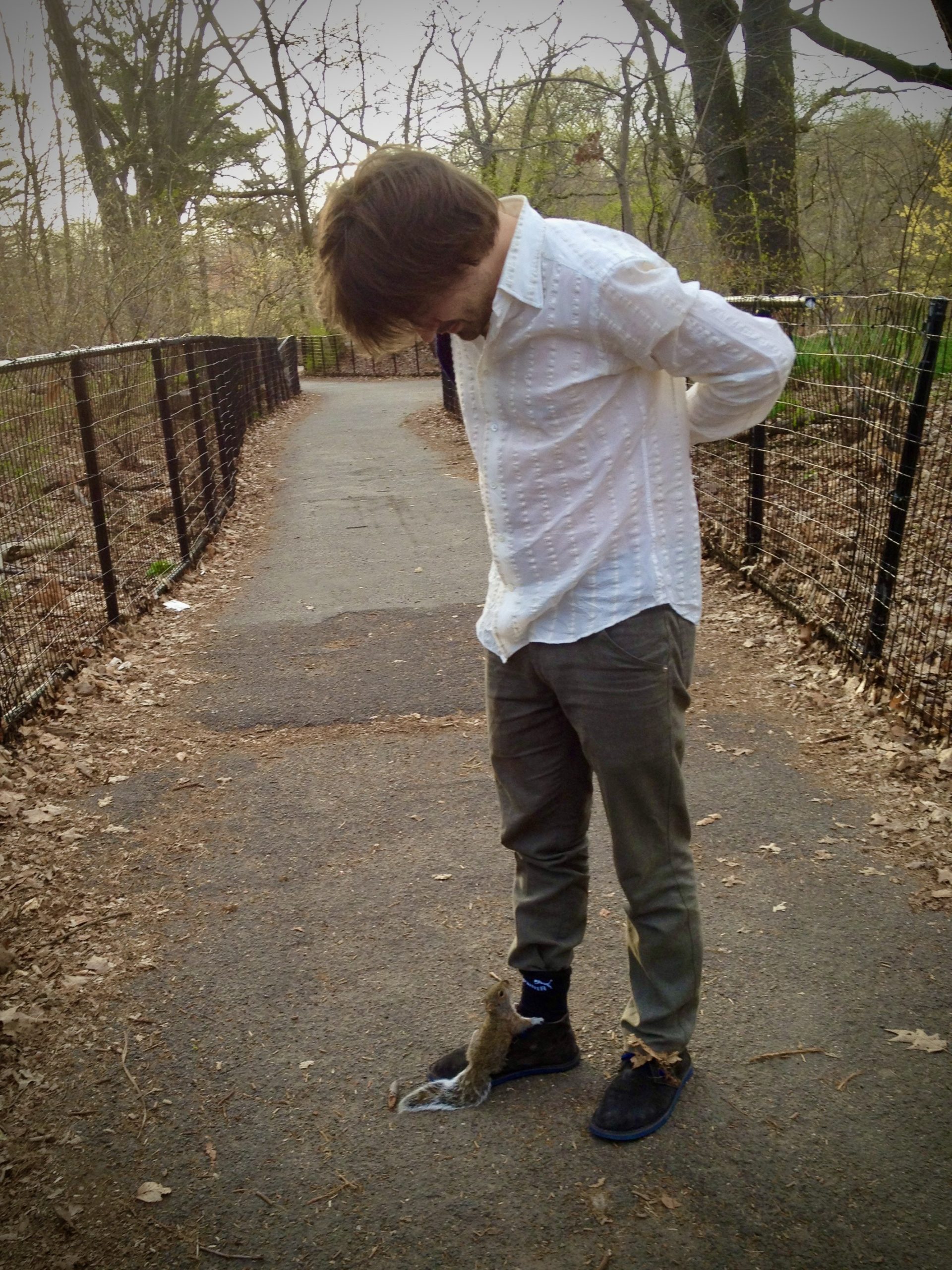
Not a baby, but an adolescent, perhaps. It wasn’t long before I picked him up. At that point, other passers-by were watching too. This little guy was disarmingly cute. He quickly found his way inside my loose-fitting sweater and wouldn’t come back out. It dawned on me that he might have been cold. I noticed after a few minutes that his muzzle was covered in something that looked like dried mud. Other than that, he seemed in good health. After a while, my friend Ruben called me on my cell phone. I told him what was going on and he asked “well, have you named him yet?” “No, I just found him five minutes ago!” I replied. “Well I think you should give him a nice Jewish name,” he said. Inspiration struck: “How about Ruben?”
My newly-christened Ruben was becoming increasingly friendly, but I couldn’t keep him, obviously, and the sun was starting to get low. So I put him down. Only thing was, he wouldn’t leave. He came right back to my feet, put his paws on my shoes, and looked up imploringly. I started to wonder what I had gotten myself into. Clearly this was a young squirrel that had somehow lost its mother, and it had imprinted on me as a possible new protector. But I’m a touring musician! The last thing I can do is keep a squirrel. I called an animal rescue center in Brooklyn — it was right before 7pm. The guy on the other end said “put him back. He’s what we call a dumb baby: he hasn’t learned to be afraid of humans yet.” So I put him back again. But he kept coming back.
The fact that he was utterly irresistible didn’t make this any easier. Other people came and went, giving their little pieces of advice: “if I were you I’d keep away from that animal — you never know what diseases it might be carrying”. A quick search on my phone gave the official word back: small rodents, in the United States, are not considered a rabies risk. One couple came by and the husband said he’d grown up on a farm and had had abandoned squirrel babies come up to him a number of times, but his dad usually forbade him to keep them. He had raised one or two, though, feeding them milk and — he said — cat food. The only essential thing, he said, was to keep the animal hydrated. Make sure it drinks, and it’ll live.
Again I tried to put Ruben back. This time, he climbed about 4 feet up the closest tree, but just as I thought our story might be ending, he turned around and ran right back to my feet. Again the imploring eyes; I picked him back up. I was alone and in a true quandary: I definitely, no way, could have a pet squirrel. I was a fiercely independent guy. I did manage to water my plants, and I did manage to keep the humidifier in my piano full most of the time, but other than that I had very few real responsibilities outside of my music. And I liked it that way. But this little guy just wouldn’t leave me alone, and the more time I spent with him — perhaps 45 minutes at this point —, the more I liked him.
Just as I was standing there with Ruben in my arms, a woman about my age appeared. She was in running gear, staring up at a branch hanging in mid-air, suspended by some kind of string attached to a tree above. Some unknown sequence of events, perhaps involving a helium balloon, had led to this. I asked her if she knew anything about squirrels, which must have come across as an odd pick-up line, until she saw that I was actually holding a squirrel in my arms. No, she said. But her curiosity was piqued and she loved holding him. We started talking. After a while I asked her what she did for a job. “I’m an actress, she said, and I teach French”. “Ah, tu parles français?”, I asked. Her English had been totally unaccented till then.
She answered in perfect French, only one of perhaps five people I’ve met in my life who speaks unaccented English and French. It turned out that she had grown up in Paris, not too far from where I grew up, on the eastern side. Her dad was American, her mom French. And then there was this: we had both gone to the same high school, a big one on the eastern edge of Paris called Hélène Boucher, and — we disbelievingly realized — had actually overlapped there by one whole year. Her name was Justine.
This was just too much. Too many unlikely events for one day. It was dark by now. I needed to put Ruben back. So I climbed over the fence separating the trail from the woods, walked ten feet in, and put him down. I walked back to the trail. Ten seconds later he was at my feet again. “You’re going to have to take him home, you know”, said Justine. Let’s make sure he doesn’t want to stay here, I said. I climbed back over the fence, Justine handed Ruben to me, and I walked a good fifty feet into the woods. I walked back, fast, to the trail. But something made me want to make sure that he was going to be all right. If his mother had abandoned him, after all, if he had fallen out of his nest onto his nose (which would possibly explain the caked mud covering his muzzle), he might not make it alone. Justine and I waited for about a minute, and sure enough, there he was again. He had followed me back.
“How about we have a drink while I decide what to do with this guy?” We walked to the east side of the park, to my neighborhood, Lefferts Gardens, and walked into Lincoln Park Tavern, with Ruben hidden under my sweater. As we sat down, I took him out and held him in my hands. He was incredibly docile. Truth is, he seemed exhausted. A waitress came over, saw the little animal and got the manager, who promptly shoed us out of the restaurant, explaining that the whole place could be shut down if a rodent were found inside. But she wouldn’t let us leave without having us take a picture of her with Ruben. Turns out she’d wanted to hold a squirrel in her hands since she was a little girl.
The only other option was my apartment. We stopped at the local bodega on the way and I bought an eye dropper and some cat food. At my place, I found a cardboard box full of packing paper and put him in there. Then I emptied the eye dropper, washed it out and filled it with water. Ruben was hesitant at first, but he drank, at least a little. He curled up into a ball and fell asleep. Over tea, Justine told me about her parents, both painters, now divorced with her dad in New York, her mom still in Paris, and she showed me their work online. Both heavyweights. Her younger brother, too, in art school in Chicago and doing some really compelling work. Some of his hand-drawn images looked algorithmic and reminded me of some of the math-based line-drawings I’d made with code.
Before long, it was time for Justine to leave. I walked her back through the park and brought Ruben with me. She said I had to keep him for at least one night. How many people get to say they brought a squirrel home? But I wanted to try putting him back one more time. I figured that if he scampered off, it meant that he knew he’d survive the night. Perhaps all he’d needed was a little warmth, and he was now okay. I walked Justine to the west side, and on my way back, tried to set Ruben free again, an act that felt like a well-rehearsed routine at this point. He wouldn’t have it. I brought him home again.
I put him in the cardboard box, full of paper that he could burrow into, and put the box in the bathtub. Next to it, I put water, cat food, and peanuts. The next morning he seemed to be okay, although he hadn’t eaten any of the things I had left for him. I gave him more water from the eye dropper, then tried to feed him some cow milk I had in the refrigerator, but he was completely uninterested. I left him with some cut-up vegetables and went into Manhattan to take a lesson with Sophia Rosoff, my 92-year-old piano teacher. A couple of days prior, Lee Konitz, the great saxophonist I regularly played with, had expressed an interest in meeting her, and I had arranged a group lesson. It had been a long time since Lee, 85 years old, had been given advice by someone older than him, but he took it gracefully. It was fun. I balanced an egg on its end, something Sophia often had her students do to get them focused and, like the egg, balanced.
On the way back I stopped at a pet store and bought Esbilac, special milk formula for puppies that the squirrel websites (of which there are many) had informed me would be good for Ruben, as well as a tiny milk bottle to feed him with, and a mix of nuts and other things especially made for small rodents. When I got back, Ruben drank the milk, which I had warmed-up first, like it was the best thing he’d ever come across. The contrast between his dislike for cow milk and his love for the Esbilac was dramatic. He knew what was good for him.
In the following days, he kept drinking milk voraciously, and he also started eating the nut and dried fruit mix that I bought. Friends came by and invariably fell in love with him. Even my friend Mathilde, with her life-long phobia of animals brought on by a childhood dog attack, loved him from afar. She even began to carefully pet him after a while, a major breakthrough for her. Over the course of two days, the caked mud, or whatever it was, that had covered his muzzle when I found him, gradually came off. When I first found him, there had been so much that he couldn’t breathe through his nose and kept sneezing when he drank; then his nostrils cleared, and then big chunks of the gunk started coming off. I had tried cleaning it off myself before, but it was solidly attached, almost like a scab. Sometimes it’s best to let time do the work for you.
On April 18th and 19th, I traveled to Boston with Ben Wendel for a duo gig. My friend Y-Lan, who I learned had loved squirrels since she was a child and had always longed to hold and play with one, came over regularly to feed him milk. She figured out that he liked licking the milk out of her hand even more than drinking it from the bottle. The feeling of his tongue against one’s skin was particularly lovely.
As this little fairy tale was unfolding in my Brooklyn apartment, Boston was in a state of emergency — the marathon there had been attacked in the most vicious of ways, with two pressure cooker bombs right at the finish line, on Monday, the day before I found Ruben. Ben and I had considered cancelling our gig, but decided that playing music in the city, as well as we could, would be the most meaningful way for us to help. I tried to say a few words about that during the concert: in many ways, it wasn’t the casualties that were most appalling in the attack (three people died, a hundred were injured; small numbers compared to the number of people killed, for example, in car accidents every year) but rather the sheer evil of it: it was so hard to imagine why anyone would want to hurt people at something as peaceful as a foot race. It just seemed so gratuitous. And for it to follow, only a few months later and not so far away, the murders of twenty children by a lone gunman at Sandy Hook Elementary School, including the six-year-old daughter of jazz saxophonist Jimmy Greene, whom I’d played with not so long before… It was horrifying. Even though it was only a few people who were committing these crimes, it tested your faith in humanity.
While Ben and I were playing that night, at a venue I often played when I lived in Boston called the Lily Pad, gun shots were fired on the MIT campus, only a few blocks away. We learned about this right after the gig, virtually as the audience was applauding. A cop had been murdered, one of the two young brothers who were the suspects in the bombing had been shot, and the other, all of nineteen years old, was on the run. After the gig, we moved to an Irish pub next door; an amazingly good traditional Irish band was playing, and after a while a young woman got up on a table and danced, quite beautifully. The strange thing was witnessing this intersection of art and violence: we all knew what was going on outside — perhaps the closest thing I’ve experienced to a war zone in my absurdly sheltered life — yet here we were, making music, listening to music, dancing. It gave me a hint of an inkling of a glimpse of what it might have been like to be living in London during the Second World War: people going about their daily business, still making music and dancing, as bombs rained down at regular intervals from German warplanes overhead. Not to speak of the too-many warzones still active around the world today. I suddenly realized, in a visceral way that put any intellectual understanding to shame, how much we in the rich West take our safety for granted. We feel entitled to be able to live our lives without constant threats of violence, but we entirely forget how much of a historical anomaly our extended period of peace — 75 years without war in Western Europe — has been. Four years earlier, I had played a series of solo concerts through the Republic of Georgia, including a gig — to which we had to be escorted by armored UN convoy — in Abkhazia, the separatist region in the Northwest of the country. Five short months after I’d been there, the whole country was at war again, Russia sending troops in to fuel the separatist flames. This peace we know isn’t normal, I realized; it’s a luxury. Above all, we’ve just been lucky.
Ben and I took a cab back to the house where we were staying; the city was eerily quiet. Sirens were blaring and we passed a gas station that had been entirely cordoned off with Do-Not-Cross police tape, on Memorial Drive. It turned out later that the police had surrounded an innocent man there.
Meanwhile, Ruben was safe and sound at home in Brooklyn, playing with friends and putting on weight. I stayed up late into the night checking the news; periodically, my friend Y-Lan, who had been watching over Ruben and is a fellow night-owl, would send me pictures and videos of him. I started to feel a new emotion: I realized that I cared about Ruben, I cared about his well-being in a way that went beyond the mere practicality of whether he would live or not, the mere sense of responsibility for another being: there was something fatherly at play, there was love. This took me completely by surprise. It felt like an important moment of self-discovery, one of those moments when we uncover something in ourselves that we didn’t know was there before.
How often do those moments of introspection happen, nowadays? I’d recently returned from studying bata drums in Cuba, where internet access was scarce and my cell phone didn’t work. I remembered the static gradually leaving my mind as time wore on. The endless noise surrounding us in our normal lives, I realized, the myriad voices competing for our attention, kept us from finding the quiet within that was so important to actual self-discovery, in Art or otherwise. As human beings, or as animals for that matter, it was only natural that we be addicted to newness: things that are new could be essential to our survival, so if a noise came up behind us, or a friend shared a piece of information, it made sense that we would have evolved to pay attention. But the internet uses our tendency to attribute value to mere newness to trick us into paying attention to things that have no value at all. And as a result, by the time an inner epiphany might start to suggest itself, we’re unable to notice, because our hunger for discovery, by that point, has been used up. Somehow the arrival of Ruben in my life was centering, making me focus on more important things like the value of life, instead of my Twitter feed.
The next morning, Boston was on lockdown, all mass transit cancelled. Ben and I got lucky, though: a friend drove us in his car to Providence, and we took a bus from there to New Haven, where we were scheduled to play at the concert space Firehouse 12. Leaving Boston was very strange. The police had told everyone to stay indoors, away from the windows. I’d never seen a city so quiet during daytime in my entire life, and wouldn’t again until the Covid-19 epidemic eight years later. That evening, as we were playing in New Haven, the second suspect was apprehended, lying near death under a tarp in a small boat in someone’s back yard in Watertown.
Over the following days, Ruben kept growing at a surprising rate. He loved being in his cardboard box, and spent an amazing amount of time sleeping. But when I woke him, he was as playful as before, only with more and more energy. He started jumping, like squirrels do. I noticed how big his paws were. He could scamper up and down my whole body as if it were a tree, and as long as I had a T-shirt and jeans on, it didn’t hurt, his claws sharp and delicate at the same time, only digging in as much as they needed to support his light body.
He was mesmerized by music. I had friends come over a number of times to listen to musical works in progress, and as soon as the music started, he would almost freeze in place, fascinated. I grew up with chinchillas, and I remembered that they reacted to music in a similar way. He once hid inside my piano as I practiced.
About a week after I found him, Ruben started getting less interested in milk. He was getting weaned. He liked nuts more and more and I loved watching him snatch one from my fingers: as soon as he grabbed it, the nut would monopolize his entire attention, the rest of the world falling away.
He was becoming increasingly squirrelly, nervous and energetic. It didn’t bother me — in fact I enjoyed seeing him grow into an independently-minded adult, and he never put up a fight when I tried to pick him up — but it made my friend Y-Lan a little sad. I had a gig in Washington, DC on April 24th with Allison Miller and Shane Endsley, and she volunteered to take care of him again. He had really changed from a week before, when he was as docile as could be, happily sleeping on her shoulder, his head hidden in her long dark hair, the tip of his nose peeking out. Now he was in constant movement, hard to pin down. One day I was walking in the park and saw an adult squirrel jump gracefully from a tree to another, tail perfectly counterbalancing his body, and I remembered where Ruben was meant to be. Squirrels make notoriously poor pets: they need space and become increasingly high-strung as they get older. They’re known to bite, hard. Ruben only nipped our fingers in a friendly way, never coming close to drawing blood, but I started to think about reintroduction.
According to my internet rodent sources, rescued squirrels do a great job of readapting to life in the wild (or in a park) if they’re released right as they’re reaching adulthood. This is the moment when a squirrel starts to curve its tail up above its body, in that classic squirrel pose, instead of letting it hang limply behind as they do when they’re young.
As April drew to a close, I was scheduled to leave for Japan for a tour with Lee Konitz, and I started to wonder what I should do with Ruben. Right at this moment he started picking his tail up, and although he behaved as fondly towards me as ever, never leaving my body voluntarily once I picked him up, he was increasingly skittish with everyone else. It was time. My only concern was that he would refuse to return, as he had done when I had first met him in the park.
The day before I was scheduled to leave for Japan, I walked through Prospect Park with Ruben tucked into my loose cardigan and a handful of nuts in my pocket. He showed absolutely no interest in leaving. He seemed to prefer, of all available options — including total freedom, which he could have chosen at any time —, the comfort of my warm body. The thought of leaving him forcefully, of running away, broke my heart. I hedged my bets: I called two old friends who had been coincidentally harboring a very young squirrel of their own — I had learned this online — and we arranged to meet the following morning in Prospect Park at the very place where I had initially found Ruben. If he still refused to leave, they would take him home and care for him while I was away. And if all went well and he returned home willingly, the experience would be a welcome preview, for my friends, of what was to come for them.
So it’s the morning of my flight to Japan. It’s bright, warm and clear, and Ruben is hiding underneath my T-shirt. I’m repeatedly trying, through laughter brought on by the tickle of his paws against my skin, to get him out and onto my hand. After what seems like a while, as my friends stand patiently watching, I finally coax him into sitting, upright, in the palm of my hand, and bring him slowly up against the very tree that he had momentarily climbed two weeks earlier before he had run back to me. Something’s changed. He’s intrigued — the situation seems to resonate with him in a way that the previous day’s walk hadn’t. He sniffs at the bark of the tree, and then nibbles at it. He cautiously puts a front paw against the bark, then two, then a hind paw. It looks unmistakably like a moment of recognition. I slowly pull my hand away, and suddenly off he goes, straight up the vertical wall of his natural habitat, in what can only be described as a joyously wiry scamper.
And then he stops, and I’m concerned that he’ll change his mind. But it’s only to look back at me, to say goodbye — or so, at least, it feels. He stops for a few moments, looks back, then moves a few more paces up before stopping to look again. It’s me he’s staring at, not the ground, nor my friends, nor the next tree over. He does this three more times before vanishing for good into the spring foliage. It’s a beautiful day, and Ruben, this spark of life small enough to hold in your hand, who may never know anything outside of my apartment and Prospect Park even as I fly off to Tokyo, is back home.

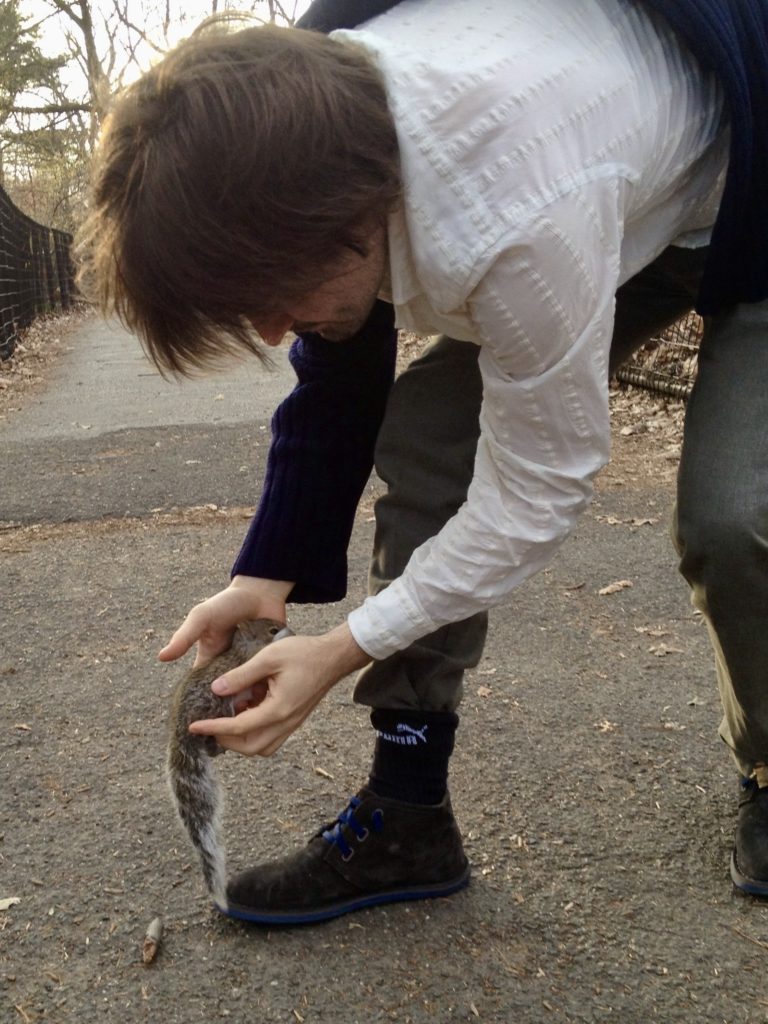
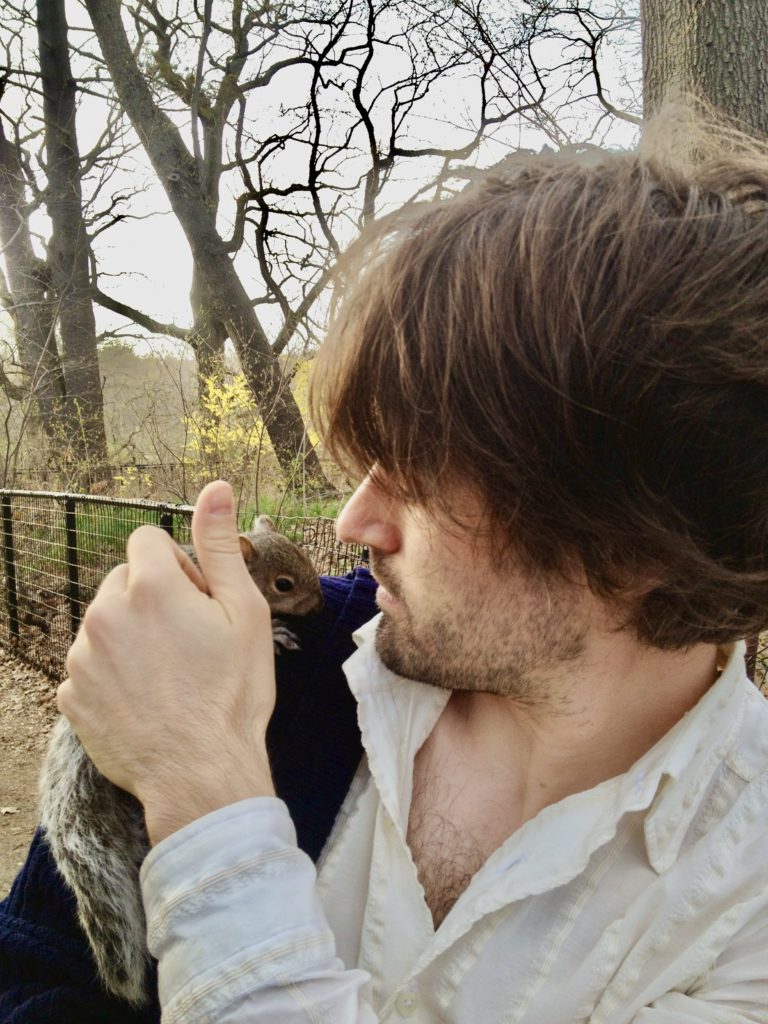
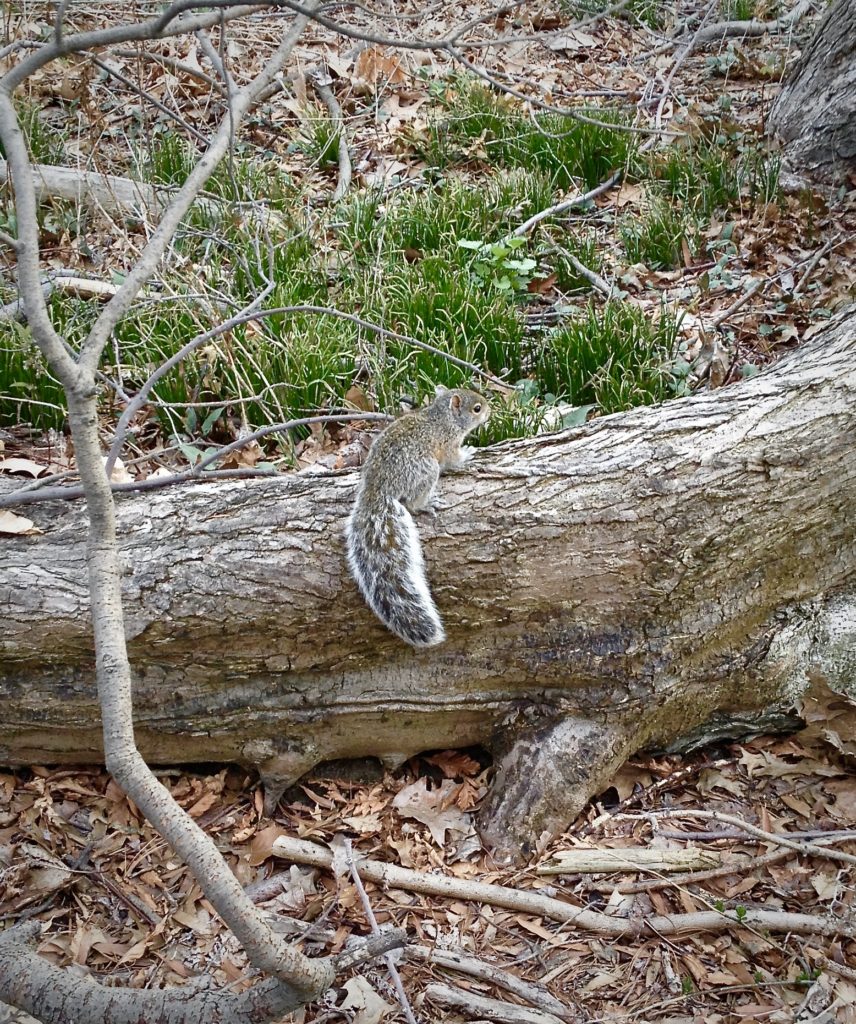
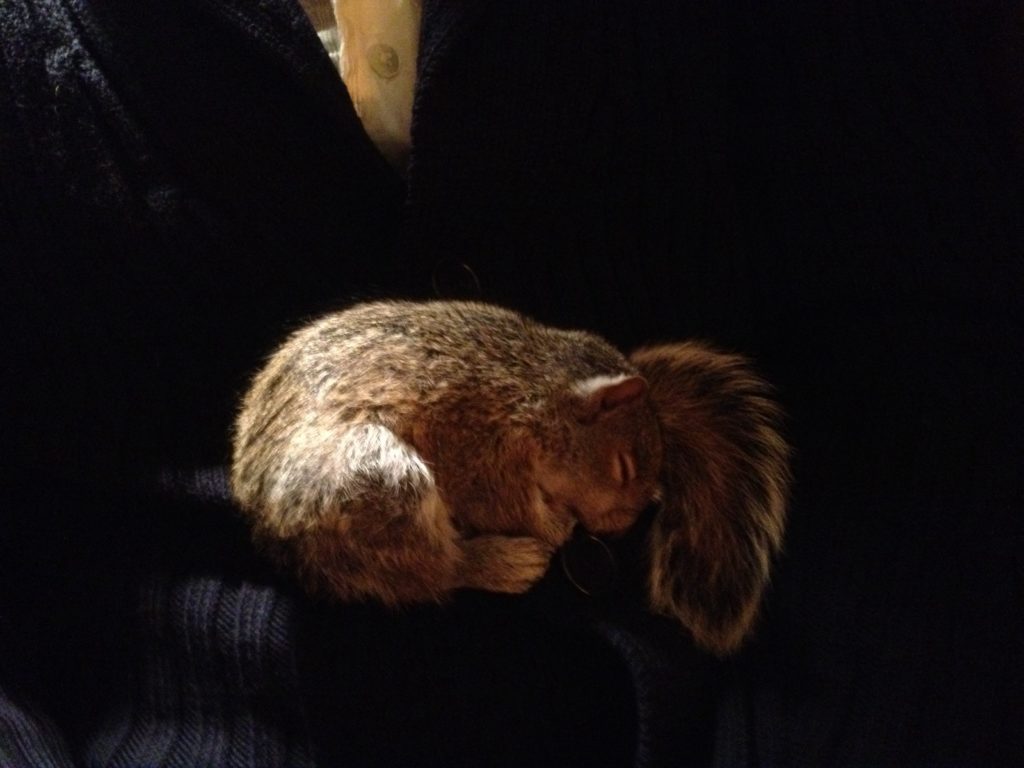
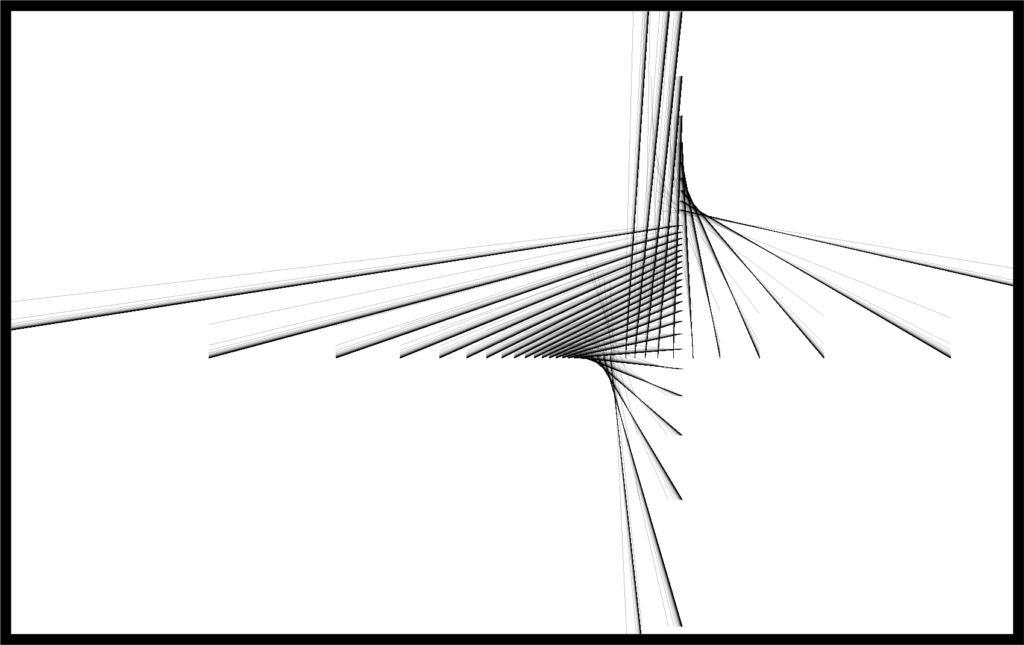
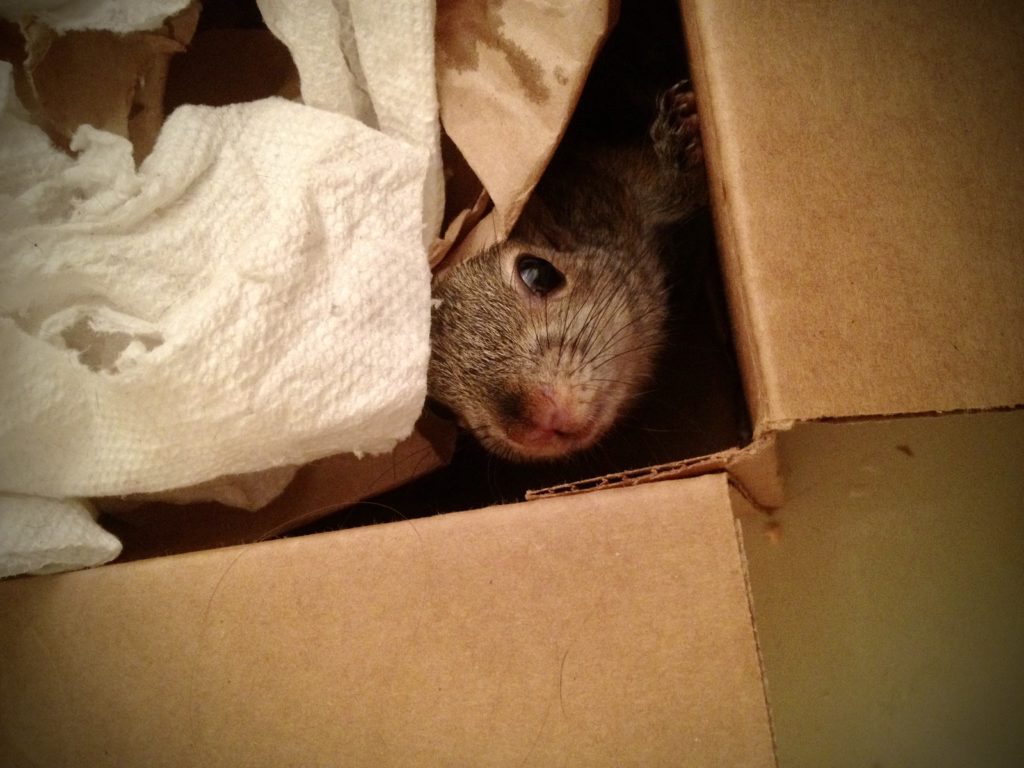
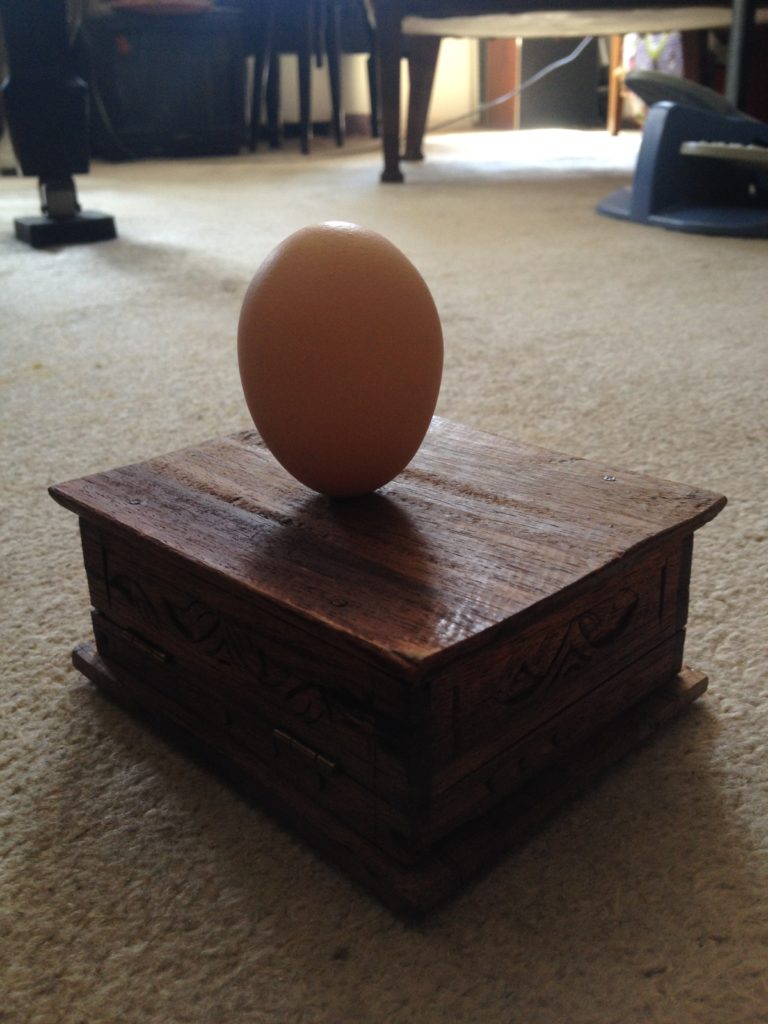
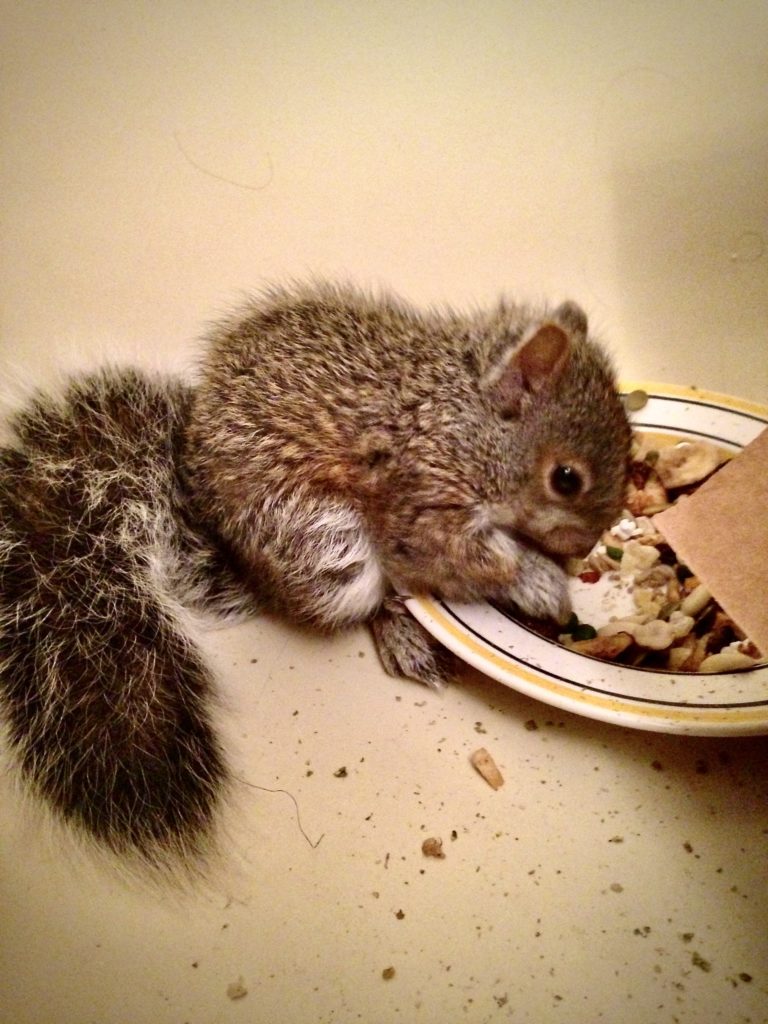

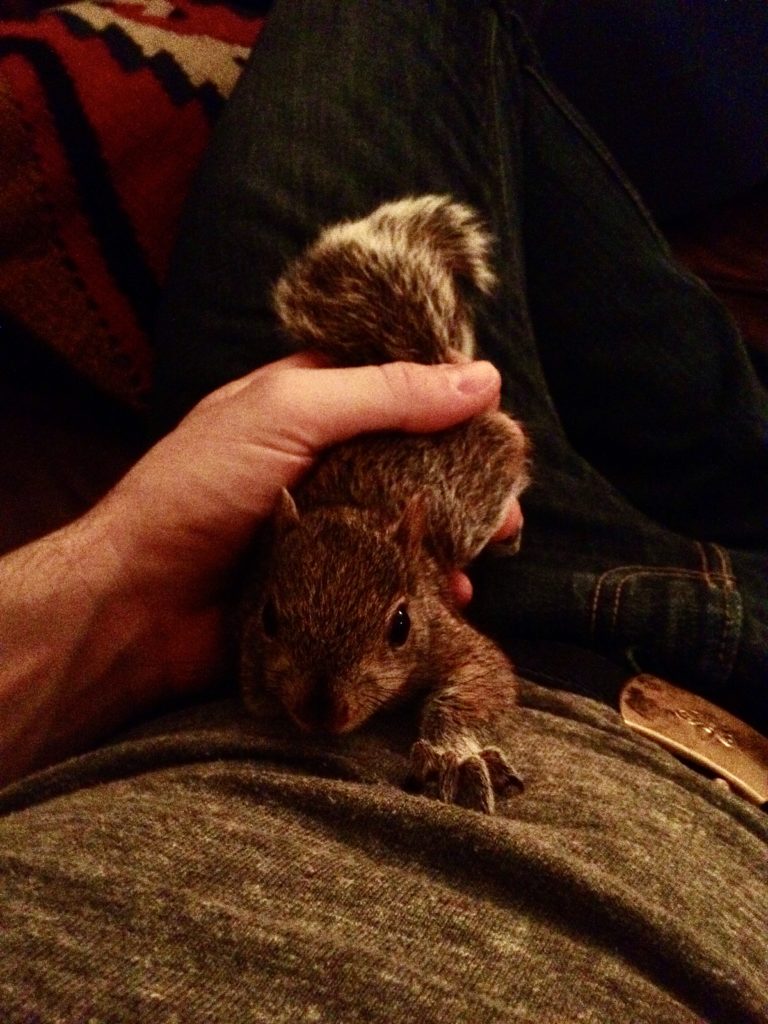
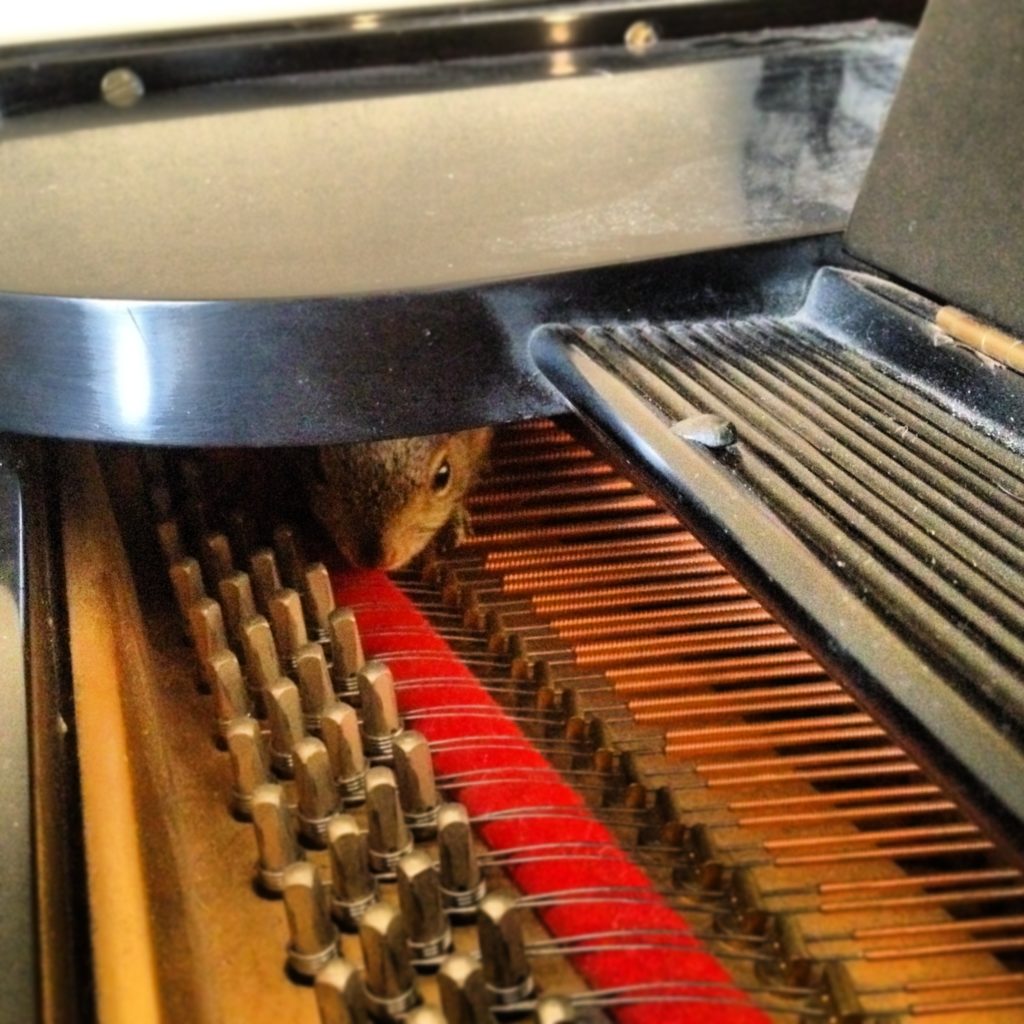
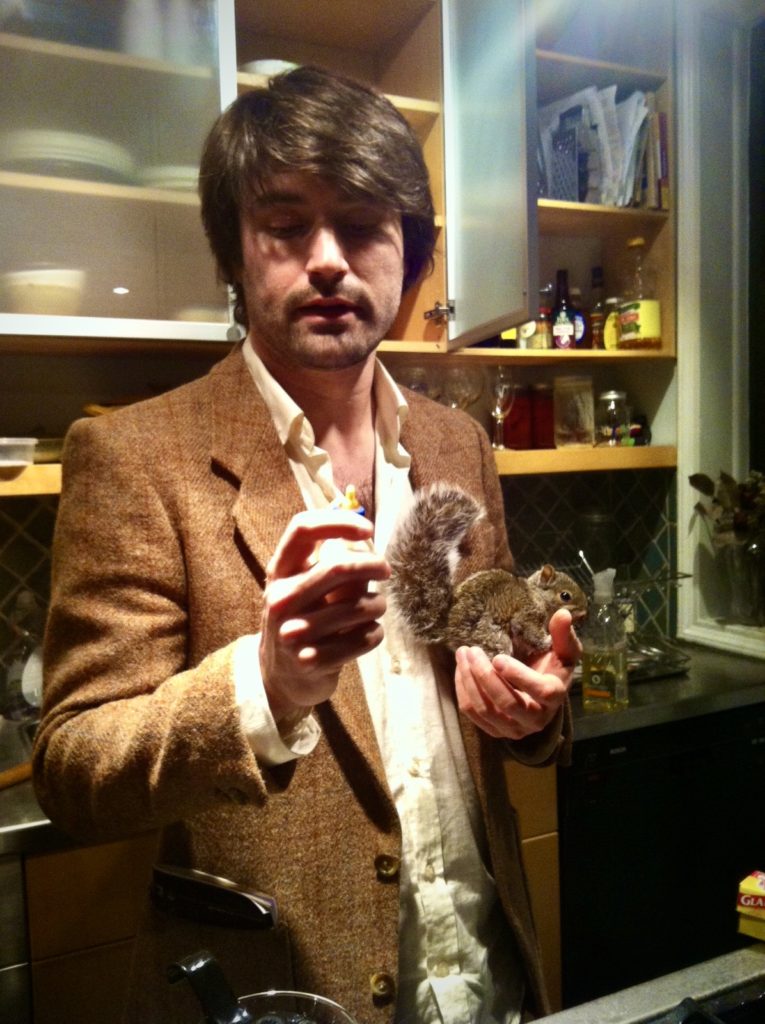
A great story, Dan. It makes me turn to a favorite poem by Ellen Bass, “Asking Directions in Paris.”
https://www.youtube.com/watch?v=cgBcUBzkR-s
This made me smile. I needed that today, since yesterday I lost someone who was once to me very much like your beloved Ruben. I cared for him briefly and tried to nurse him to self-sufficiency – or at least as sufficient as it is possible for a young man at the onset of schizophrenia. He okay in the 27 that followed – just okay. But he received an inheritance from his adopted father – and that honestly spelled his end. Parasites around him exploited him for money and led him to hard drugs – heroin. Although it was not an overdose, the downward spiraling effects led to a rapid decline in health. He passed yesterday at 11:46 am.
Wow Mike, I’m so sorry to hear this. A terrible story. My condolences to you.
What a beautiful story! I discovered your music from the duo concert with Fred Hersh, and subsequently the Goldberg Variations. And now this! I half expected at the end to read you then married Justine!
I’m a pianist and improviser, but make my living as an elementary music teacher. I do a weekly freestyle solo piano podcast called Piano Meditations.
Would love to catch the Mezzrow gig but we have houseguests. See you at a future concert.
Ha ha! Sometimes a coincidence is just a coincidence. Thanks for your kind words.
Dan, I met your parents about twenty years ago when I was in Paris for six months writing a book on the buildings of Paris and happened to go to a Passover Seder they were hosting. Since then, I’ve attended many of their salons, whenever I’m back in Paris, including ones where you’ve played. I love your piano playing esp your jazz and have zoomed in when I can. As a very mediocre to bad pianist, l’m really envious and admiring of your talent. I remember having a conversation with your mom about your music. I was so sorry to learn of her passing. Anyway, a long intro really to tell you this is a wonderful, thoughtful piece. Thanks for writing about your experience. All the best, Kathy
🙏🏻🙏🏻
Hi Dan,
There is something circular about this story, echoing the nature of so much that I have heard you play (as in the Variations when you play them and then let the reverse play).
Lovely…and you were a good transition for little Ruben. Good deed done; play on.
He was a good transition for me, too. 🙂
Wonderful story, Dan. I’m so glad it turned out the way it did. The whole evolution of it was very satisfying to read.
I also appreciated your comment about the addiction to newness that we have. It’s an idea that’s been floating around in my head for a while. The way you describe it is perfect and helpful.
Thanks, Ellen!
Beautifully woven storytelling, Dan!
Transformative on many levels, so thank you, Dan. And for a moment, everything else in the world faded into the background in a way it’s rarely done during the pandemic. Condolences to Mike Sites, too.
This is such a beautifully written piece. I remember Ruben and I remember being there for the gig at the Lily Pad (and being in a cab on Memorial Drive when the police cars headed the other way to chase the suspects into Watertown). Life is crazy sometimes. Thank you for posting this.
Yes! You were there. Life is *nuts* sometimes indeed.
So great to hear the whole story and see the pictures and film, Dan. You probably saved his life. He also changed your life in a special way.
Oh Ruben! We hardly knew ya.
Dan, Your well crafted story is a wonderful blend of thoughtful observation, humor and philosophy. I read it just after my morning yoga and a nice swim outdoors. Can’t think of a better way to start a lovely fall day. Thank you for this little gem and for all the other sparkling gifts you share with lucky ones like me :). Maybe consider submitting for publication? Then more hearts would sing a little tune …
Thank you Jade! I’d be happy to publish this story; not quite sure where.
Oh my gosh, how cute are these photos of you with Ruben. Thank you for sharing this story. I went to MIT and the marathon bombing and subsequent search for the suspects and death of the campus police officer hit close to home. Hope to see you someday if you choose to share your gifts out here in Southern California!
A beautiful piece of writing! Maybe the best thing about this all is that the squirrel picked you & picked you again & again & again 🙂 That means you are a very good person. And don’t worry about the actress. A great coincidence for sure! Maybe she was very pretty and all but, well, actresses are not the best match for musicians, as you know from my other stories 😉 It’s kind of funny how you met that “expert in squirrels” from the farm right there & also: who took all those pictures if you were there alone? Anyway, I’ve really enjoyed reading this all 🙂 Have a nice Sunday! And tomorrow: #MondayDanday 🙂 Marcie
Pictures were taken by people passing by, a number of whom stopped when they noticed I was holding a squirrel!
I thought so 🙂 You have priceless memories thanks to them 🥰
What a lovely tale, well told, Dan!
Thanks Irwin!
Finally found the time to read this beautiful story.
At my workplace.
Don’t tell my boss.
My lips are sealed! 🙂
A great story….thank you for it, and for the beautiful way you told it.
Thank you Mary!